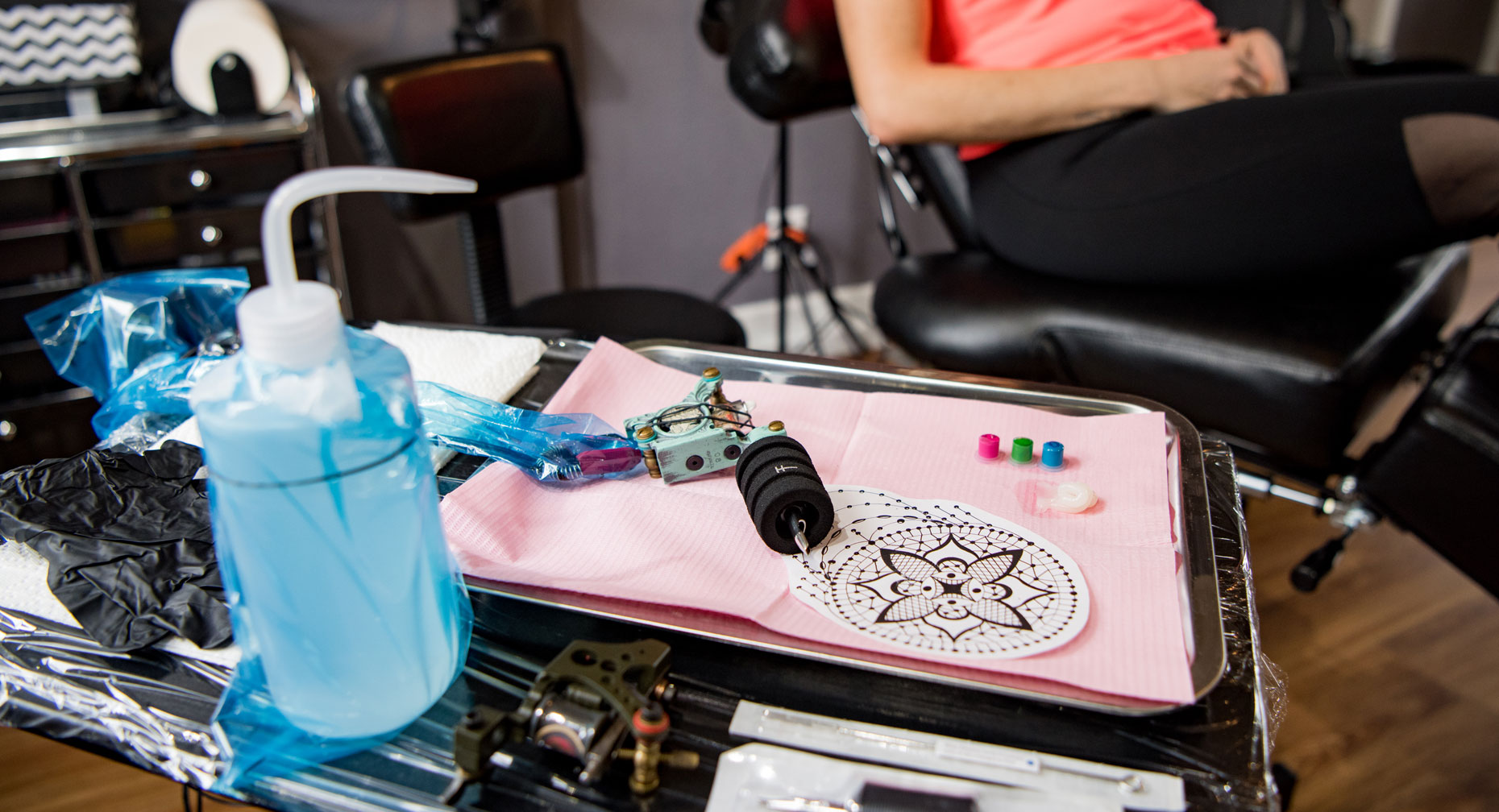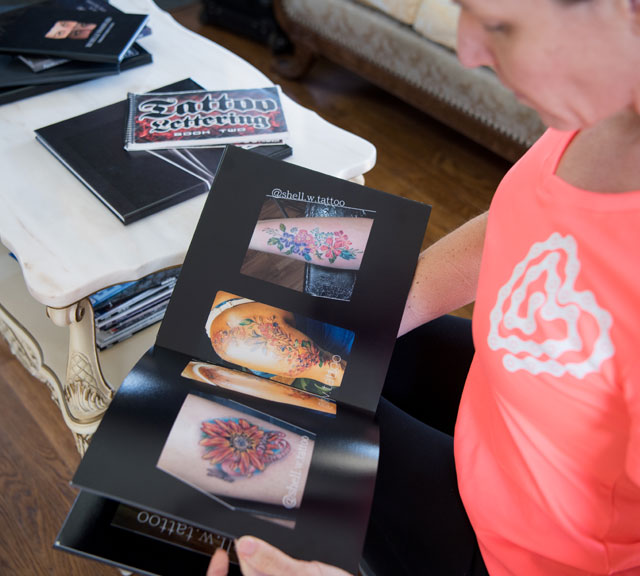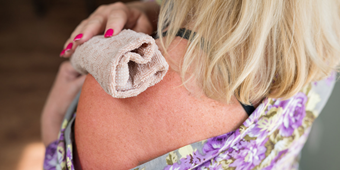Thinking About Inking? Think Again

Answer a few questions and we'll provide you with a list of primary care providers that best fit your needs.
A tattoo may tell the world that you love Bill. Or your mom. But it can also lead to painful infections, scarring and even surgery. If you plan to express yourself through inking, take time to research the dangers that can lurk behind those eye-catching designs.
What Happens When You Get a Tattoo?
If you’re considering a permanent tattoo, here’s how it works:
- The tattoo artist draws an outline of the tattoo on the skin.
- A special electric gun makes very quick punctures in the skin, using a needle with ink on it.
- The ink penetrates the top layer of skin and goes into the second layer so it becomes permanent and doesn’t fade.
Another kind of tattoo is created with henna, made from plant leaves. These tattoos are temporary and are usually brown, green or red. Be wary of black henna, however. It may contain a dangerous chemical that can cause itching, blistering or even scarring.
Avoid do-it-yourself tattoo inks and kits. They’ve been linked to infections and allergic reactions.
Know the Risks
Getting a tattoo can put you at risk for:
- Infections and even a serious illness, like HIV or hepatitis, from unclean tattoo tools, practices or products
- Allergic reactions to the inks, which can cause skin problems like nasty rashes
- Other skin problems, such as increased chance of sunburn, bumps, redness or scarring
- Swelling and burning of the tattooed skin during an MRI test
How to Stay Safe

While getting a tattoo is not without risks, taking precautions will make the process safer. Follow these tips to minimize problems:
- Avoid do-it-yourself tattoo inks and kits. They’ve been linked to infections and allergic reactions.
- If you do get a tattoo, make sure the parlor and artist comply with state and local laws.
- Request inks that are manufactured just for tattoos.
- Make sure the tattoo artist follows hygienic practices and uses sterile equipment. She should avoid using non-sterile water to dilute the pigment (ingredient that adds color).
- If you get an infection or have an allergic reaction, contact your health care provider and notify the tattoo artist. The artist can identify the ink and stop using it.
- Remember that if you change your mind later, complete removal without scarring may not be possible. Avoid using a tattoo removal kit at home — some contain acid, which can cause permanent injury.
Be aware that some factors are out of your control. An ink can be contaminated even if the container is sealed or the label claims it’s sterile. Some tattoo inks even contain pigments used in printer toner or car paint. And little is known about their safety or long-term effects. No pigments injected into the skin for cosmetic purposes have earned approval from the Food and Drug Administration (FDA).
How to Care for Tattooed Skin
Follow these dermatologists’ tips to keep skin healthy and tattoos bright:
- If your tattooed skin feels dry, use a water-based lotion or cream. Stay away from petroleum-based products, like petroleum jelly, which can fade colors.
- Use sunscreen. Ultraviolet (UV) light can lighten tattoo inks. Choose a broad-spectrum, water-resistant sunscreen with a sun protection factor (SPF) of 30 or more.
- Avoid tanning beds and sunlamps. They can wash out tattoo colors and increase your risk of skin cancer. The UV light may even react with the ink, triggering a painful skin reaction.
- Seek help from a board-certified dermatologist if you have a skin reaction or if your tattooed skin changes in any way. She can diagnose what’s happening and treat it.
- If you’re considering a new tattoo, get it on mole-free skin. Tattoos can mask early signs of skin cancer. Even melanoma, the deadliest form of skin cancer, is highly treatable if caught early.
Answer a few questions and we'll provide you with a list of primary care providers that best fit your needs.
Source: Smithsonian Insider; Centers for Disease Control (CDC); The Skin Cancer Foundation (skincancer.org); Food and Drug Administration (FDA); American Academy of Dermatology




